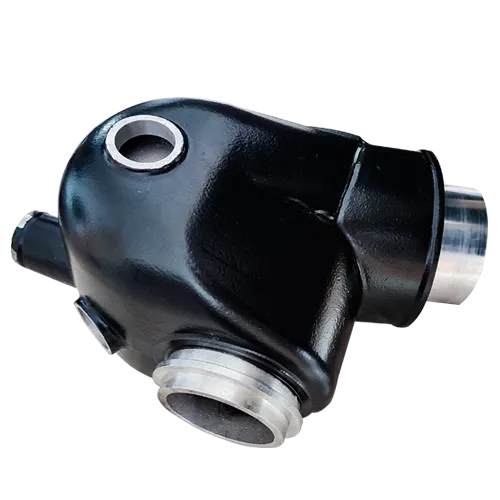Mobile:+86-311-808-126-83
Email:info@ydcastings.com
turbine pump impeller
The Role of Impellers in Turbine Pumps
Turbine pumps are a vital component in numerous industrial and engineering applications, efficiently transferring fluids with varied characteristics, including those that are corrosive, viscous, or contain solids. At the heart of any turbine pump is the impeller, a key element that directly affects the pump's performance and efficiency. This article focuses on the significance of impellers in turbine pumps, their design aspects, and their operational principles.
Understanding the Impeller
An impeller is a rotating component of centrifugal pumps that transfers energy from the motor to the fluid through rotational kinetic energy. In turbine pumps, the impeller operates on a similar principle but possesses a unique design that allows it to handle high heads and operate effectively over a wide range of flow rates. Impellers are typically made of robust materials, such as stainless steel or special alloys, to withstand the fluid's corrosive or abrasive nature.
Design Aspects
The design of an impeller can significantly influence the pump's overall efficiency and performance. Impellers in turbine pumps are usually multistage, meaning they consist of multiple interconnected impellers that work together to increase the pressure output. Each stage adds kinetic energy to the fluid, resulting in a higher total head, which is essential for applications requiring the lifting of fluids to significant heights.
The shape and size of the impeller blades are also critical factors. Blades can be designed with varying angles and lengths to optimize the flow characteristics and minimize turbulence. A well-designed impeller ensures smooth fluid passage, reducing the risk of cavitation—a phenomenon that can lead to significant damage and reduced efficiency over time.
Operational Principles
turbine pump impeller

When the turbine pump is activated, the motor drives the impeller, causing it to spin rapidly. As the impeller rotates, the blades push the fluid outward and create a centrifugal force. This motion generates a pressure difference that draws the fluid into the pump from the source. The fluid then passes through the impeller stages, gaining additional energy with each stage it traverses. The result is a pressurized fluid that exits the pump at a higher elevation and with increased velocity.
One of the advantages of turbine pumps is their ability to handle varying flow conditions. Because of their multi-stage design, turbine pumps can achieve high efficiency across a wide range of operating conditions. This versatility makes them suitable for applications in agriculture, water supply, HVAC systems, and even in the oil and gas industry.
Maintenance and Efficiency
Maintaining the impeller is crucial for the long-term performance of turbine pumps. Regular inspections can identify issues like wear and tear, erosion, or blockage, which can compromise efficiency. Replacing or repairing worn impellers can restore the pump's performance, preventing costly downtime and ensuring the system operates at peak efficiency.
Moreover, the efficiency of a turbine pump is often influenced by the design of the impeller. Advances in computational fluid dynamics (CFD) have allowed engineers to optimize impeller designs, enhancing both energy efficiency and flow performance. As a result, turbine pumps equipped with advanced impellers can significantly reduce energy consumption, contributing to more sustainable industrial practices.
Conclusion
In conclusion, impellers are fundamental components of turbine pumps that greatly affect their operational efficiency and effectiveness. From their intricate design to their ability to maneuver various fluid types, impellers play a decisive role in the performance of turbine pumps. As industries continue to evolve and seek greater efficiency, the innovation in impeller design will undoubtedly lead to more advanced and resilient turbine pumps, ensuring their critical role in fluid transport remains undisputed. Understanding and investing in the right impeller design is crucial for any application relying on turbine pumps, paving the way for enhanced efficiency and sustainability.
-
Why Should You Invest in Superior Pump Castings for Your Equipment?NewsJun.09,2025
-
Unlock Performance Potential with Stainless Impellers and Aluminum End CapsNewsJun.09,2025
-
Revolutionize Your Machinery with Superior Cast Iron and Aluminum ComponentsNewsJun.09,2025
-
Revolutionize Fluid Dynamics with Premium Pump ComponentsNewsJun.09,2025
-
Optimizing Industrial Systems with Essential Valve ComponentsNewsJun.09,2025
-
Elevate Grid Efficiency with High-Precision Power CastingsNewsJun.09,2025











